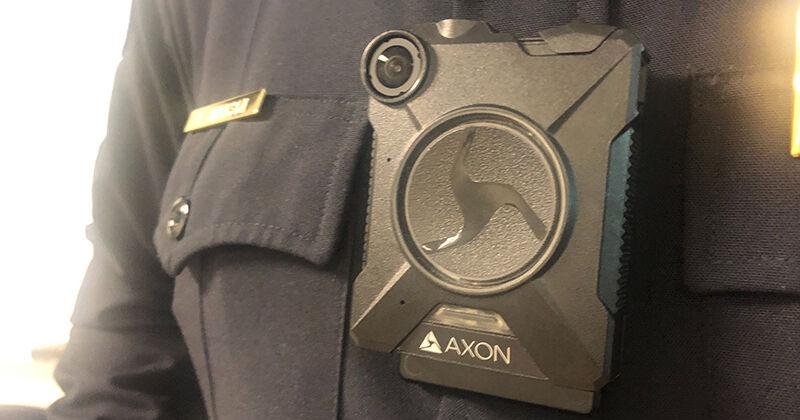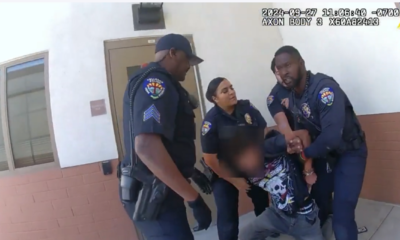Business
Police Body Camera Footage Costs Skyrocket Under New Law

Public records advocates are raising concerns over a new Arizona law that permits police departments to impose substantial fees for reviewing body-worn camera footage before releasing it. Critics argue that these fees can become exorbitant, posing a barrier to public access to crucial information.
This legislation, which was enacted in June 2023, allows local authorities to charge a one-time fee of $46 for each hour of video reviewed in response to public records requests. Senator John Kavanagh, a former police officer and the law’s primary sponsor, asserts the high fees are intended to deter frivolous requests, suggesting the measure is functioning as designed.
However, the reality on the ground varies widely across the state. The Arizona Mirror has found disparate fee structures among law enforcement agencies, with some charging thousands of dollars for footage. Jared Keenan, legal director for the ACLU in Arizona, comments that the escalating costs were anticipated, stating, “The cost can become pretty steep pretty quick.”
Kavanagh argues that individuals seeking video footage should bear the cost so that average taxpayers aren’t left to subsidize these requests. During the legislation’s introduction, Kavanagh emphasized the importance of reasonable fees and fair reimbursement to taxpayers faced with expenses to obtain public records, including the significant costs associated with redaction and editing.
Complaints have surfaced about how some police departments, like the Phoenix Police Department, have responded to requests. A recent report from the U.S. Department of Justice criticized their claims of staffing issues affecting responsiveness, indicating that these assertions might not bear out and have resulted in litigation for failure to provide records.
While some departments, such as Phoenix PD, charge lower fees—$4 plus a potential $5 deposit—many others implement the maximum $46 rate. According to the Arizona Mirror’s findings, approximately 11 of the 25 agencies surveyed charge this maximum, which could raise significant revenue for the police departments at the potential expense of transparency.
This new fee structure shares similarities with a 2021 law that also allowed charging for videotape reviews by the Arizona Department of Public Safety. Senator Kavanagh has stated that the fees aim to manage the financial burden on police budgets from large public records requests.
Yet, additional charges, like those for digital storage or processing fees, are raising red flags among public records advocates. Critics argue such policies can effectively undermine the spirit of public records law. Keenan highlights that these excessive fees can prevent average citizens, especially families of victims of police violence, from accessing essential video evidence.
As agencies set various charges and additional fees, the overall impact on public transparency is increasingly questioned. Lawmakers and advocates are calling for a review of these practices, with some legislators proposing that changes may be necessary to prevent any potential overreach in fees and charges related to public records requests.
Currently, no lawsuits have challenged the new fees, leaving the legal standing of these charges uncertain. Future changes may demand legislative action, which could face obstacles given the Republican control of the Arizona legislature. Senator Anna Hernandez voiced the need for societal movement toward greater accountability, especially in light of ongoing investigations into police conduct.
As the debates continue, questions linger about the true intent behind body-worn cameras. Initially adopted to enhance transparency, the emerging fees may provide a contradictory narrative regarding law enforcement’s commitment to accountability.


















